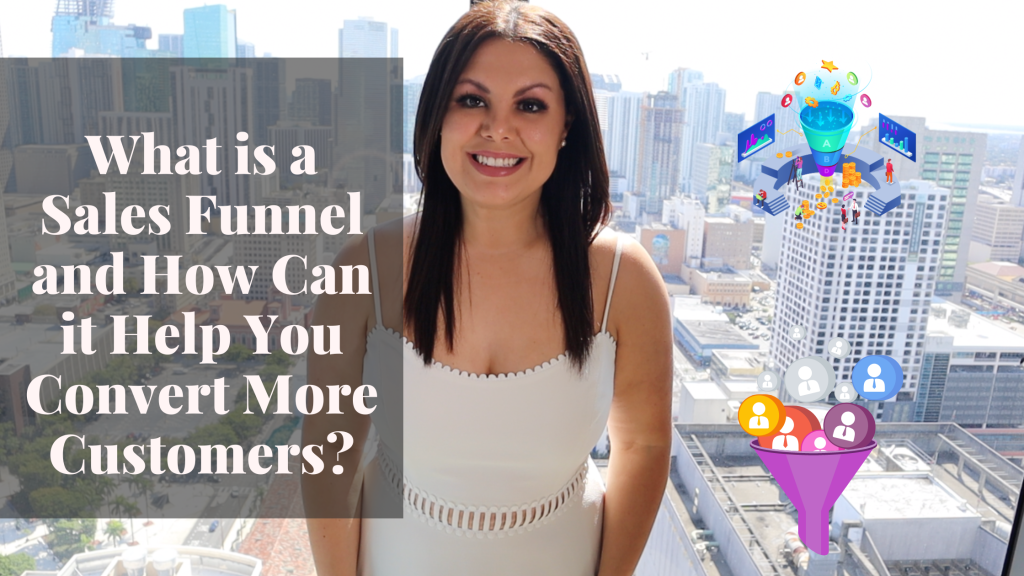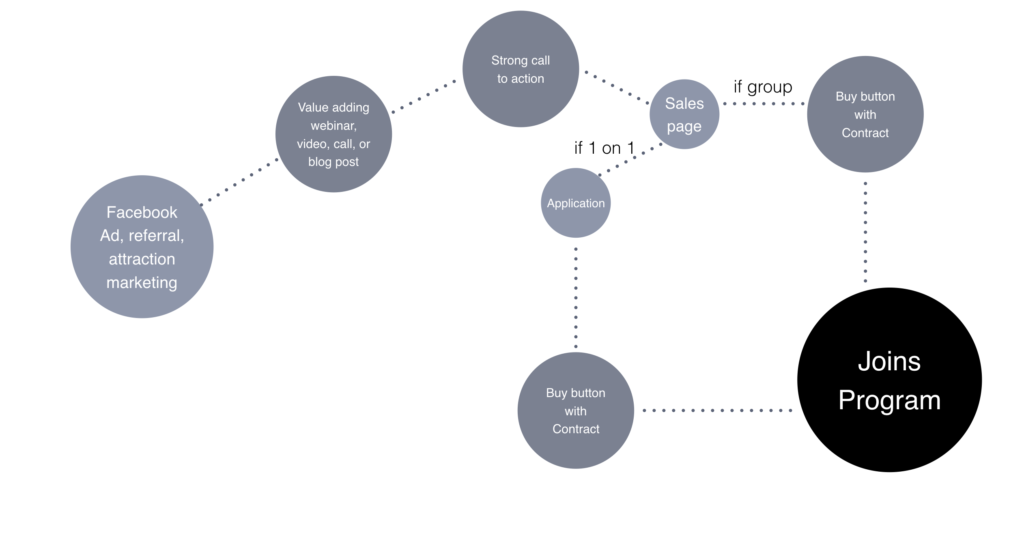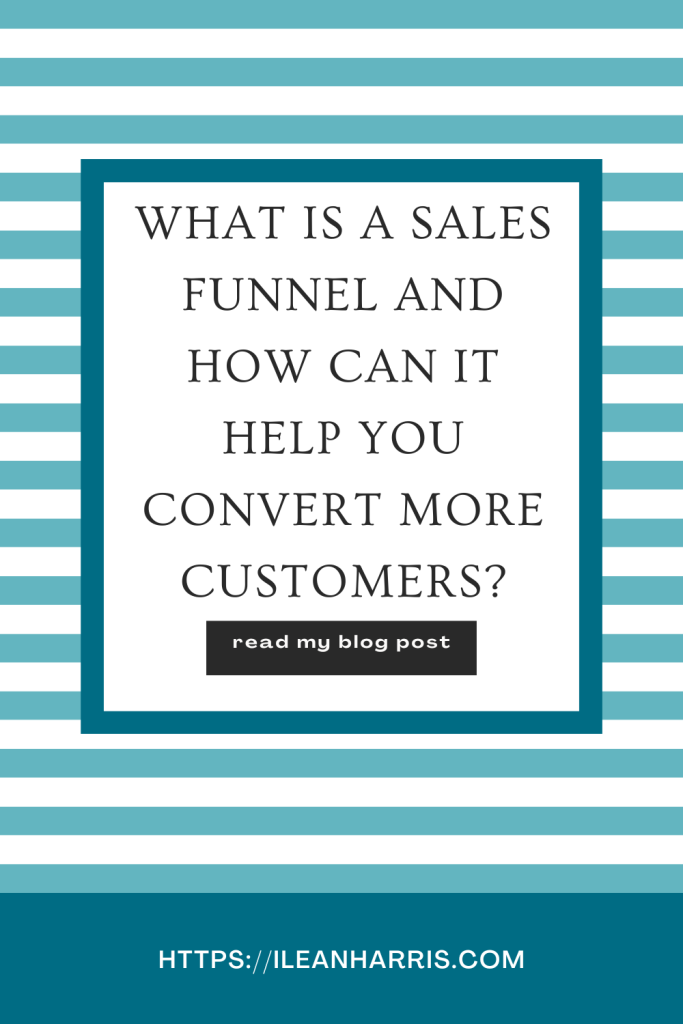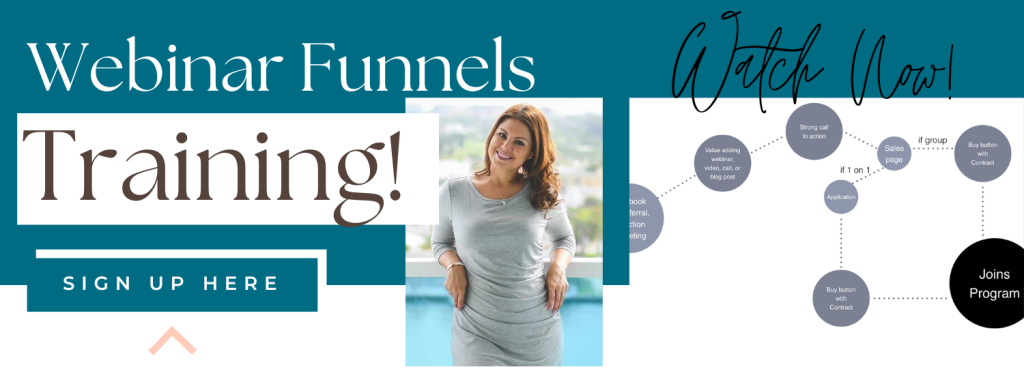This post is all about what is a sales funnel.

What is a Sales Funnel and How Can it Help You Convert More Customers?
If you’re running a business, you’re always looking for ways to get more customers and boost your sales. And that’s where a sales funnel comes in.
In this post, we’ll explore what a sales funnel is and how it can help you convert more customers.
So, what is a sales funnel?
Simply put, a sales funnel is a visual representation of the journey a customer takes from first learning about your product or service to making a purchase.
The funnel is shaped like, well, a funnel, with a wide opening at the top that gradually narrows down as prospects move through the different stages of the funnel.
The stages of a sales funnel vary depending on who you ask, but in general, a sales funnel can be broken down into four main stages:
- Awareness: At the top of the funnel, your prospects become aware of your product or service. They might find you through social media, a Google search, or a referral from a friend.
- Interest: In this stage, your prospects are showing some level of interest in what you offer. They might sign up for your email list, follow you on social media, or browse your website.
- Decision: This is where your prospects are weighing the pros and cons of buying from you. They might compare your product or service to your competitors, read reviews, or ask for recommendations.
- Action: This is the stage where your prospects become customers. They might make a purchase, sign up for a service, or take some other action that shows they’re ready to do business with you.
Now that we know what a sales funnel is, let’s talk about how it can help you convert more customers.
- Helps you identify and target the right audience
One of the biggest advantages of a sales funnel is that it helps you identify and target the right audience. By understanding the different stages of the funnel, you can create targeted messaging and content that speaks to your prospects at each stage of the funnel.
Click here to learn how to build a webinar funnel.
For example, if you know that your prospects are in the awareness stage, you can create blog posts, social media content, or ads that introduce them to your product or service. If you know they’re in the decision stage, you can create case studies, reviews, or testimonials that help them make a decision.
By creating content that speaks to your prospects at each stage of the funnel, you can build trust, establish your authority, and increase your chances of converting them into customers.
- Helps you nurture leads
Another advantage of a sales funnel is that it helps you nurture leads. Not every prospect who enters your funnel is ready to buy right away. Some might need more time to research, compare, or evaluate before making a decision.
That’s where lead nurturing comes in. By providing valuable content, answering questions, and addressing objections, you can keep your prospects engaged and interested in what you offer. This can be done through email marketing, retargeting ads, or personalized messaging.
By nurturing your leads, you can stay top of mind and increase your chances of converting them into customers down the line.
- Helps you track and measure your success
Another benefit of a sales funnel is that it helps you track and measure your success. By using analytics and metrics, you can see how many people are entering your funnel, where they’re dropping off, and how many are making it to the end.
This data can help you identify areas where you need to improve, optimize, or tweak your funnel. For example, if you notice that a lot of people are dropping off at the interest stage, you might need to create more engaging content or improve your website’s user experience. If you notice that not enough people are making it to the action stage, you might need to create more compelling offers or incentives.
Click here to learn more about an automated webinar funnel.
By tracking and measuring and optimizing your sales funnel, you can improve your conversion rate and ultimately increase your revenue.
- Helps you build relationships with customers
Finally, a sales funnel can help you build long-lasting relationships with your customers. Once a prospect becomes a customer, it’s important to keep them engaged and satisfied with your product or service.
By providing excellent customer service, offering loyalty programs or discounts, and staying in touch through email or social media, you can turn one-time customers into repeat customers, and repeat customers into brand advocates.
In addition, happy customers are more likely to refer you to their friends and family, which can bring in even more business through word-of-mouth marketing.
Get started with a webinar funnel today!
Webinar funnels have become a popular and powerful tool for generating leads and sales on autopilot. While there are many different types of funnels, webinar funnels have proven to be the most effective for coaches and course creators.
So, what exactly is a webinar funnel? It’s a type of sales funnel that utilizes a webinar as the main attraction to draw in potential customers.
The goal of the webinar is to provide valuable content that solves a specific problem or pain point for your target audience. At the end of the webinar, you offer a paid product or service that will help them achieve their goals even faster.

The beauty of a webinar funnel is that it does all the selling for you.
You don’t need to convince people to buy your product or service because the value of what you’re offering is demonstrated throughout the webinar. You simply need to present the offer in a compelling way and provide a clear call-to-action.
But how do you promote a webinar funnel?
First, you need to build an email list of potential customers who would be interested in your product or service. You can do this through social media advertising, paid search, or by offering a free lead magnet in exchange for their email address.
Once you have your email list, you can promote your webinar through email marketing. Make sure to highlight the benefits of attending the webinar and provide a clear call-to-action to register. You can also promote your webinar on social media, your website, and through guest blogging on relevant sites.
After the webinar, it’s important to follow up with your attendees through email marketing.
This is where you can offer your paid product or service and continue to provide value through educational content and special promotions.
Click here to learn more about email marketing.
Overall, a webinar funnel is a powerful tool for coaches and course creators to generate leads and sales on autopilot.
By providing valuable content through a webinar, you can attract potential customers and demonstrate the value of your product or service. With the right email marketing strategy, you can follow up with attendees and convert them into paying customers.
Conclusion
In conclusion, a sales funnel is a powerful tool that can help you convert more customers, build relationships, and grow your business.
By understanding the different stages of the funnel and creating targeted messaging and content, you can attract the right audience, nurture your leads, and close more deals.
In addition, by tracking and measuring your success, you can optimize your funnel and improve your conversion rate over time. So, if you’re looking for ways to boost your sales and grow your business, a sales funnel is definitely worth considering.

This post was all about what is a sales funnel.







